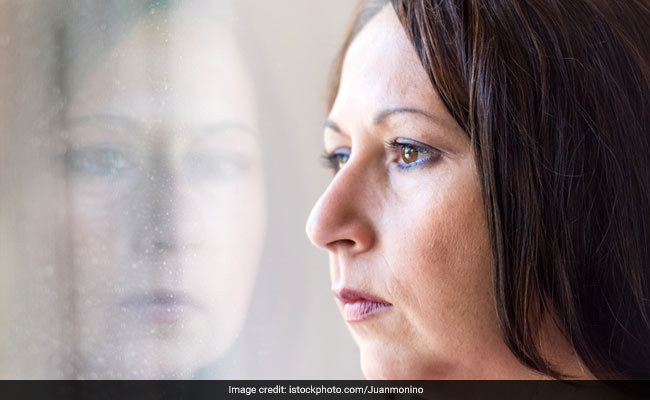Chairperson of the International Fertility Centre, Dr Rita Bakshi explains what perimenopause is all about. Read here.

Perimenopause is usually defined as the phase around menopause
HIGHLIGHTS
- Perimenopause takes place 8 to 10 years before menopause
- Before your periods stop completely, that phase is called perimenopause
- Women are at a higher risk of heart diseases during perimenopause
Menopause is a familiar term, perimenopause is not. Menopause marks the end of the reproductive cycle of a woman's life. But this is not the only phase you should be aware of. There are a number of phases within and around menopause which a woman should be well aware of. One such phase begins 8-10 years before menopause and that is called perimenopause. So the two are a part of the same transition but are still two completely different phases with different symptoms and treatment options.
Chairperson of the International Fertility Centre, Dr Rita Bakshi says, "Perimenopause takes place 8 to 10 years before menopause. Normally it starts around 40 but in some women it may start as early as 30 years of age. So before your periods stop completely, those years are called perimenopause. Periods here become irregular and with time they will come to an end which is called menopause."
Premenopause VS Perimenopause
Again, premenopause and perimenopause are two different phases. When you are going through the premenopausal stage, you still have periods (regular or irregular) and are still in the reproductive stage. Hormonal fluctuations take place but no changes can be seen in your body as such. But when you enter the perimenopausal stage, you start experiencing menopausal symptoms like hot flashes, mood swings and disturbed periods.
Dr Bakshi explains the difference between the two. She says that perimenopause takes place for a longer period of time. But premenopause is the period just before the menopause. It happens between 45 to 52 years of age, which is the usual age of menopause.
When does perimenopause take place?
Perimenopause occurs 8 to 10 years before menopause. Some women reach this stage during their 30s or 40s. This stage is marked by a decrease in estrogen levels, which is the main hormone in the female body. Despite the sharp decrease in estrogen levels, a woman can still conceive. This sharp decrease leads to irregular periods. This phase can last for a period of a few months and can even last for up to four years in some cases.
What are the symptoms of perimenopause?
Dr Bakshi explains the symptoms of this phase, she says, "One can experience mood swings, weight gain, hot flashes because the estrogen levels are falling. The ovaries are not producing any eggs due to which the estrogen hormone decreases. So people find it difficult to differentiate between menopause and perimenopause."
Symptoms of perimenopause include:
1. Disturbed periods (irregular, heavier and lighter than normal)
2. Bad PMS
3. Headaches
4. Low libido
5. Weight gain
6. Changes in hair
7. Forgetfulness
8. Tender breasts
9. Difficulty in concentration
10. UTIs
11. Fertility issues
12. Muscle pain
13. Hot flashes
14. Mood swings
15. Insomnia
16. Vaginal dryness
17. Frequent urination
18. Depression and anxiety
19. Dry skin
20. Fatigue
This phase is when cholesterol levels spike. This is why women are at a higher risk of heart diseases during perimenopause.
"If a person sticks to a healthy lifestyle, balanced diet and is taking good care of herself, this is a very natural phenomenon. But if you are experiencing too much hot flashes, abnormal weight gain, depression, migraine-like symptoms and it is disturbing your life, you must reach out to a doctor for treatment," Dr Bakshi explains.
(Dr Rita Bakshi is the Chairperson of the International Fertility Centre)
Disclaimer: This content including advice provides generic information only. It is in no way a substitute for qualified medical opinion. Always consult a specialist or your own doctor for more information. NDTV does not claim responsibility for this information.
DoctorNDTV is the one stop site for all your health needs providing the most credible health information, health news and tips with expert advice on healthy living, diet plans, informative videos etc. You can get the most relevant and accurate info you need about health problems like diabetes, cancer, pregnancy, HIV and AIDS, weight loss and many other lifestyle diseases. We have a panel of over 350 experts who help us develop content by giving their valuable inputs and bringing to us the latest in the world of healthcare.














